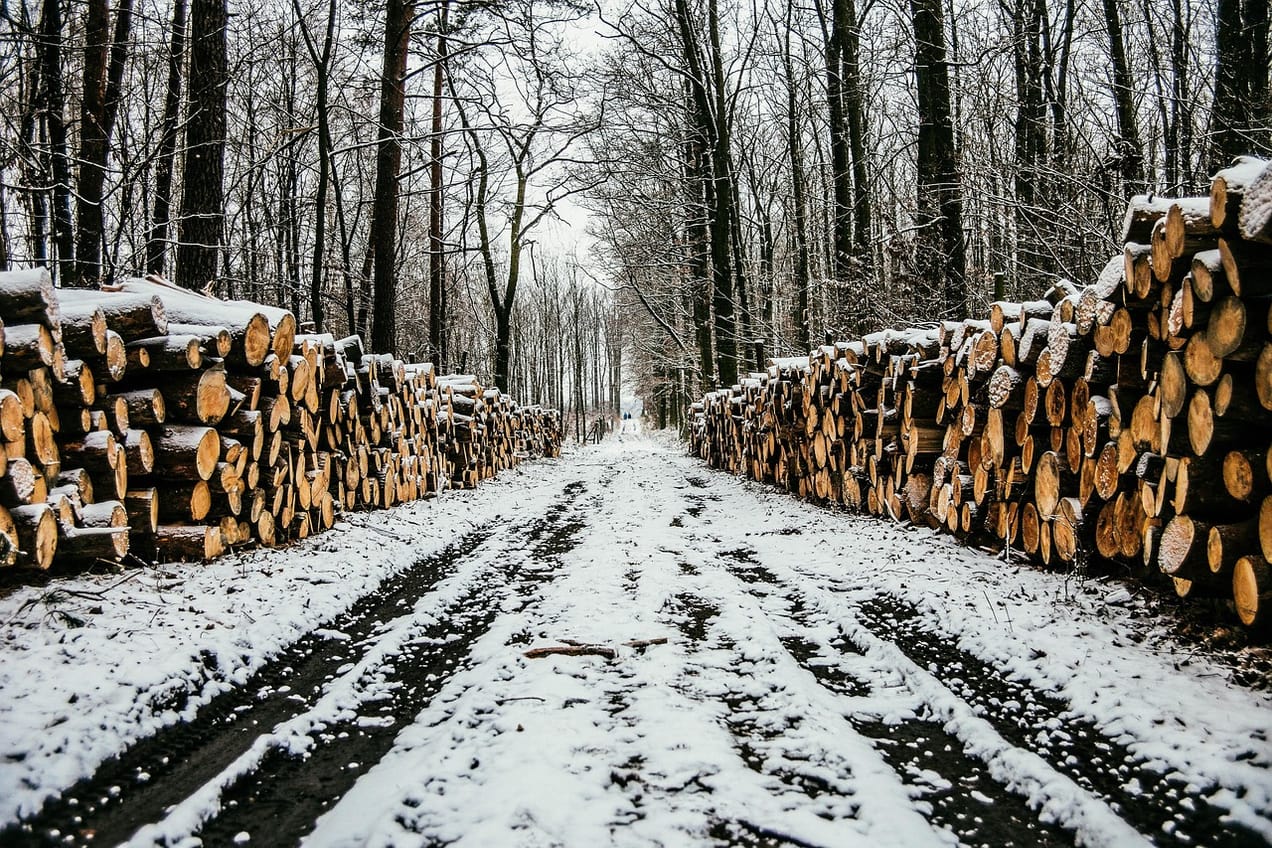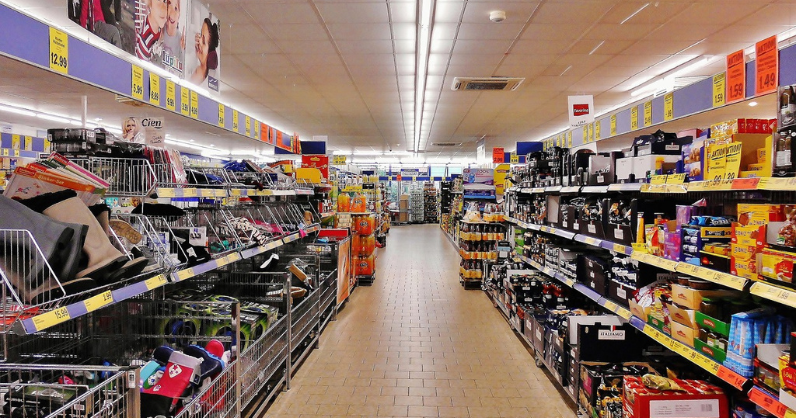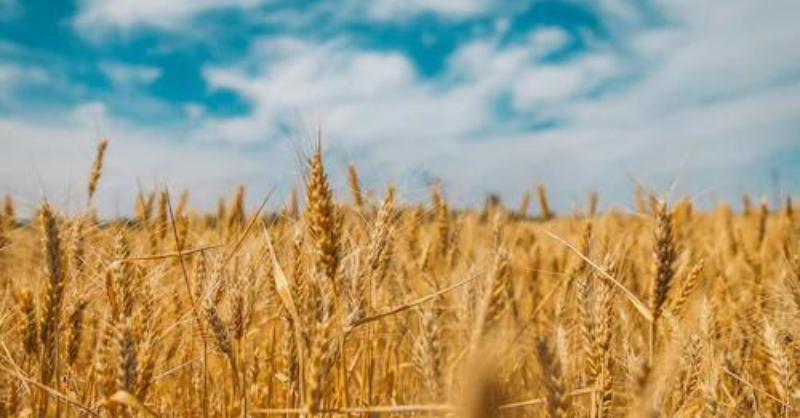
Sustainable food: ingredient diversification and reformulation really helps
"Diversity may be the hardest thing for a society to live with, and perhaps the most dangerous thing for society to be without". William Sloane Coffin Jnr
The food industry has the potential to make a massive difference in terms of making our agricultural system more sustainable. And many of the things they can do also can make good business and financial sense. Product reformulation is one of the less obvious, but potentially most powerful, routes.
Why this is important: We all know that there is a lot that sustainability professionals can do to make the food industry more sustainable. One obvious action is to create better supply chains, that reduce or even eliminate practices such as deforestation, the overuse of fertiliser and pesticides, and the depletion of our soils. But, there are other less obvious actions that can also make sound financial sense.
Among these the potentially most powerful is product reformulation. This can involve making the food healthier, but it can also diversify the ingredient base, reducing our exposure to the current narrow raw material base.

The details
Summary of an article published by Nesta:
Currently, our shops are flooded with too many products that are high in fat, sugar, salt and calories. There are many ways to improve the quality of our
diets, and one is to address the calorie density of food. Calorie density is the
number of calories per gram of food, with higher calorie-dense food providing more energy in smaller quantities than less calorie-dense food. Reducing the calories in common foods has the potential to impact the prevalence of obesity, a major long term health issue.
One way to reduce the amount of calories is to reformulate foods using new
ingredients, changing recipes or adapting manufacturing processes to reduce their
calorie density. We know that men need to cut 165 calories per day from their diets and women 115 calories on average to meet the goal of halving obesity prevalence by 2030.
Why this is important
The Nesta analysis shows that we can make our food healthier. And they propose that we focus our reformulation efforts on 10 main food categories. These include some obvious ones (cakes, biscuits and savouries) but also ones you might not expect, such as mayonnaise and chilled ready meals.
Our food is all designed - and we can change the recipe.
A recent Ellen MacArthur Foundation report highlights that most of the food that is eaten is processed, to varying degrees. This means that it is designed. There have been very intentional and deliberate decisions made that determine the foods flavour, texture, nutritional content, appearance and of course its cost. This process does not have one single perfect outcome. Different decisions made in the food design stage can result in the use of very different ingredients. We can change the recipe.
A good example of this is cow's milk vs plant based milk. Milk consumption globally is predominantly fresh milk (including fermented and pasteurised) except in high income countries, where it's more tilted toward processed products such as cheese and butter. By switching to plant based milk, where this makes nutritional sense, the food processing and food retail industries can make a material difference to both GHG emissions and biodiversity loss.
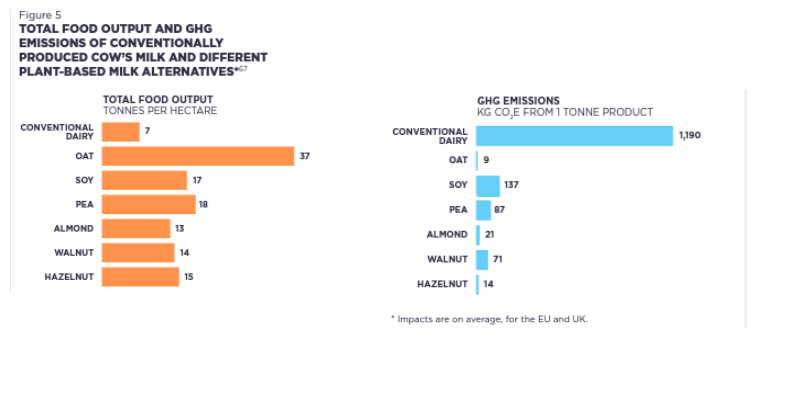
We need to diversify our food sources
But, there is much more to this than just reducing the environmental impact of food, as important as that is. Today, just four crops provide 60% of the world’s calories. I don't know about you, but that sounds very concentrated, and hence it's a material financial risk. This risk is not just about one off impacts such as the war in the Ukraine impacting global grain supplies. It's also about environmental and pest risk.

These four crops are wheat, rice, corn, and potatoes. Only a few varieties of each of these staple crops are cultivated at scale and, overall, varieties and breeds of domesticated plants and animals are increasingly being lost as the food system becomes more homogenised.
Taking potatoes as an example. This crop is highly susceptible to a wide range of pests and diseases. Research shows that climate change could cause global potato yields to decline by up to a third by 2060, unless diverse climate-resilient varieties are widely adopted. And yet, of the over 4,500 varieties that exist globally, just a handful are consumed at any sort of scale.
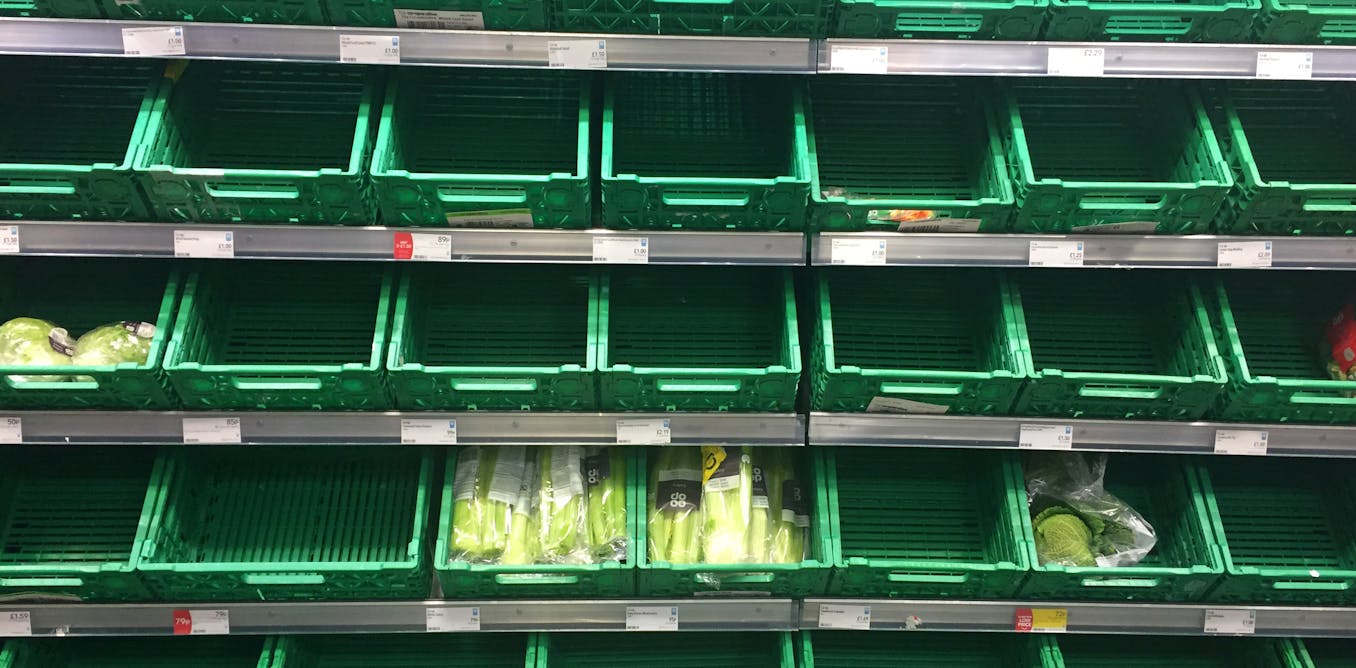
The same is true for the production of other ingredients, such as sweeteners. Rather than using just three crops – sugar beet, sugar cane, and corn – to produce the majority of sweeteners, a greater diversity of crops can be used to fulfil the same properties. Plus, its possible to use peas to make pasta, we just need to start thinking differently.
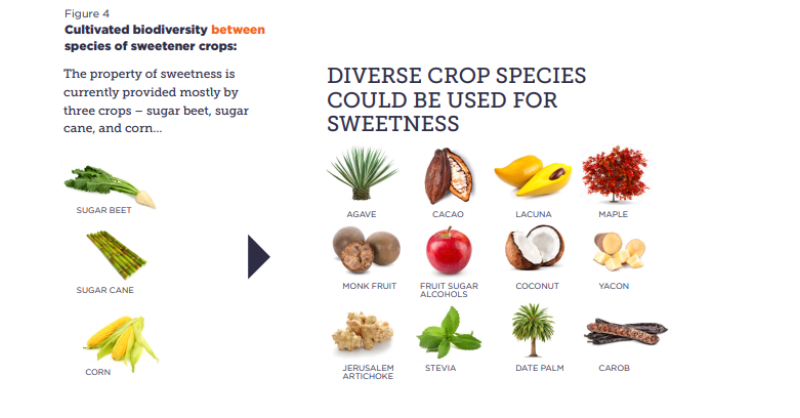
And this is not just about replacing one ingredient with another.
We can also change the way that the ingredients are grown. For example, intercropping wheat with peas builds soil health because peas fix nitrogen in the soil, and the peas can also be sold as ingredients. And it can make financial sense. Growing wheat and peas together using a set of practices that support regenerative outcomes can be profitable after just one year without any subsidies, whereas intercropping wheat with beneficial but inedible crops might take four years to reach profitability.
And sourcing wheat produced with a bundle of practices (minimum-tillage, intercropping, and cover cropping) can lead to a 50% reduction in GHG emissions and a 25% reduction in biodiversity loss in the modelled geographies. After a ramp-up time of approximately 10 years, the farmer may be able to make an
additional USD 125 per harvest per hectare per hectare, and as a result of improved soil health and effective application of new practices, the farm may see a 5% increase in yields.
None of this will be easy. Production processes and supply chains have been refined and fine tuned, to make them as efficient as possible. But, from a financial perspective, being too reliant on a small number of raw materials could turn out to be a massive financial risk. So diversification and product reformulation makes sense.
This is where Sustainability Professionals have a major role to play. We can highlight the risks, and provide practical and financially viable alternatives. Yes, changing food supply chains will take time, but it's a lot easier if we start now.
You may also be interested in ...
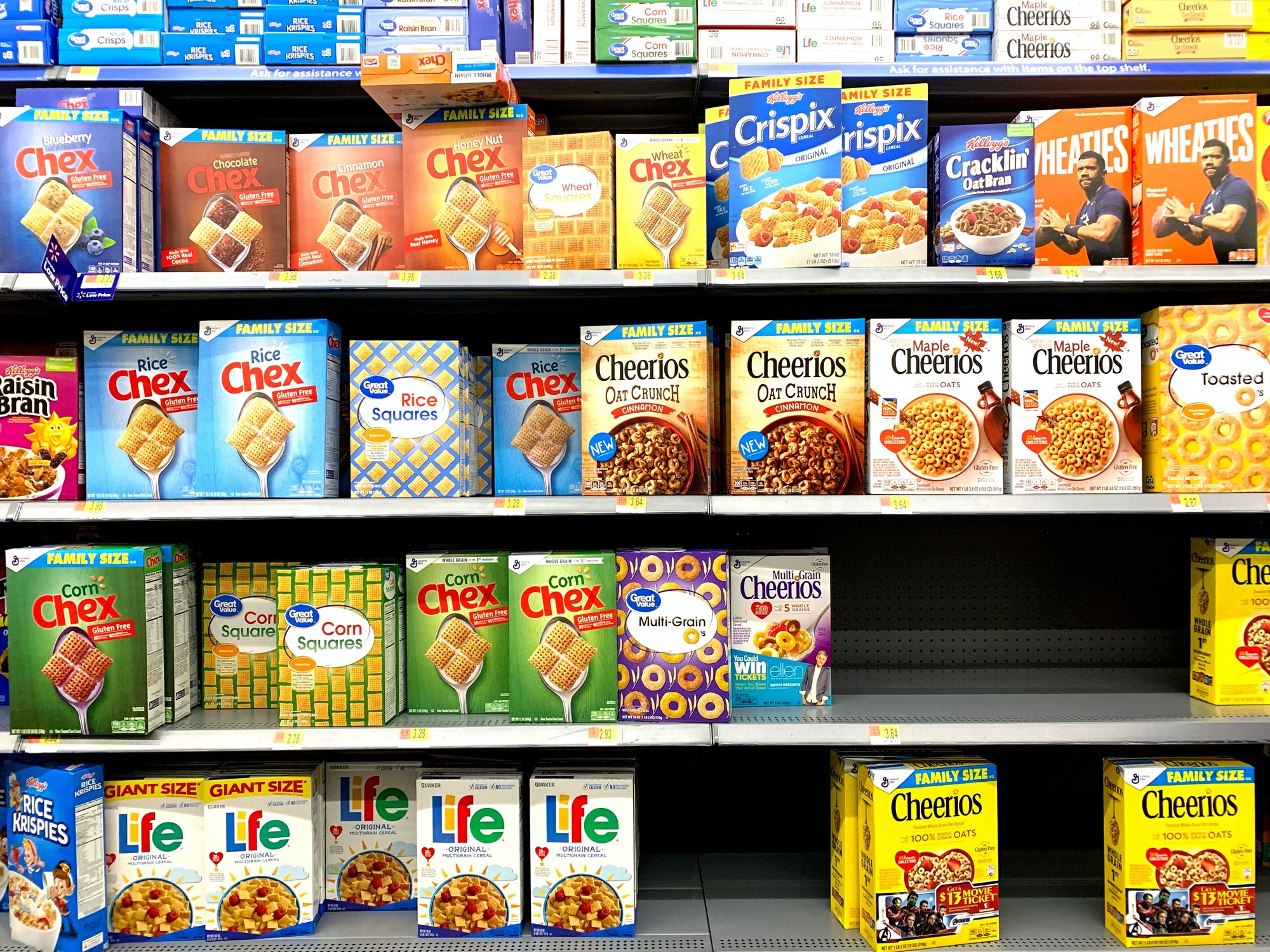
Something a little more bespoke?
Get in touch if there is a particular topic you would like us to write on. Just for you.
Contact us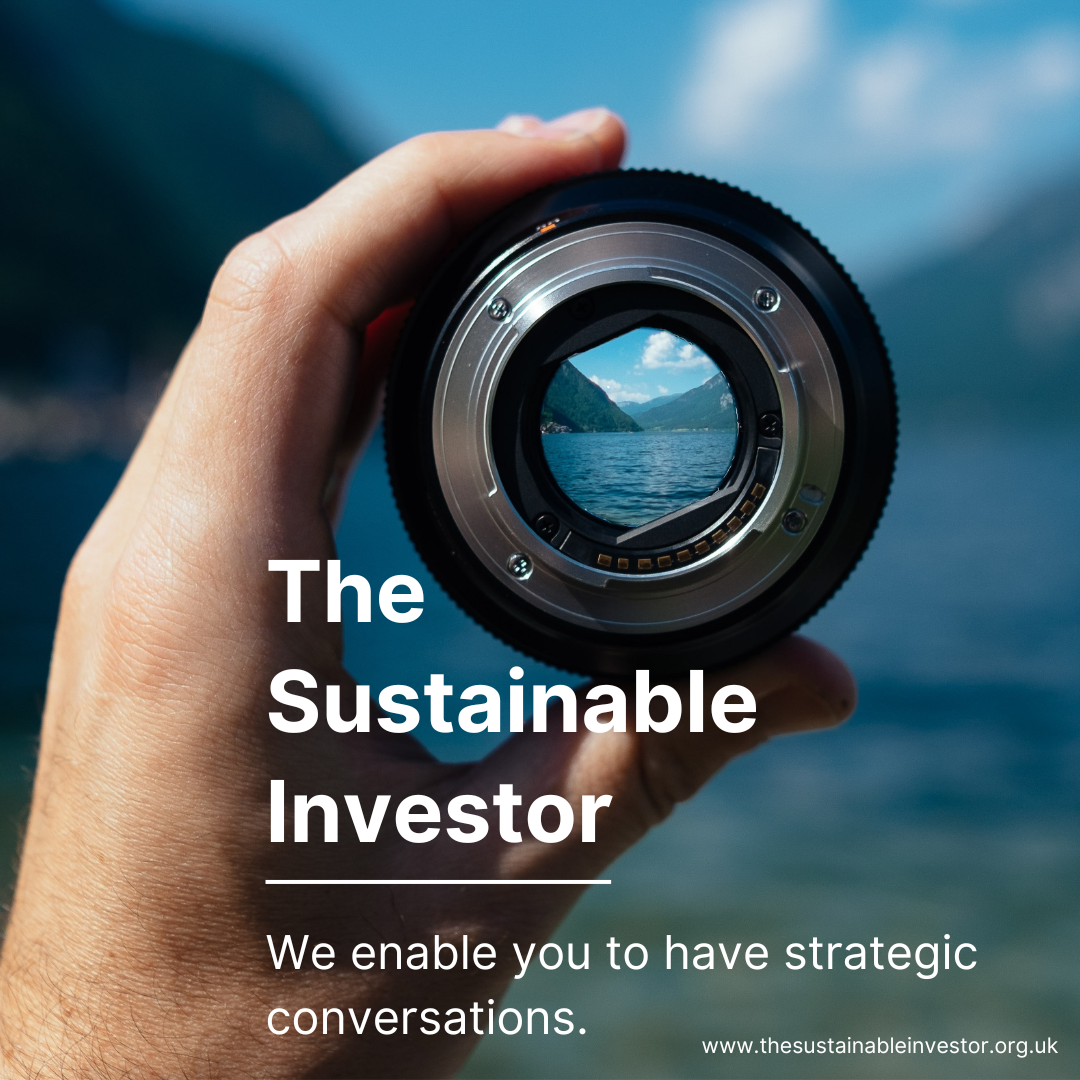
Please read: important legal stuff.


